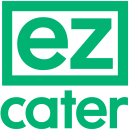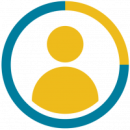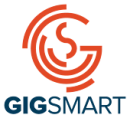Less than two years ago, anyone predicting that remote work would be the norm for tech professionals would have sounded ridiculous. And yet, that is the reality we live in now — working from home, having flexible hours and having employees’ mental health and practical life needs addressed at work are becoming fundamental pillars of a satisfactory job.
It doesn’t seem like that flexibility is going anywhere, either. According to Small Business Trends, 86 percent of working professionals think that having flexible and remote options would reduce their stress at work, 65 percent of currently remote workers have no desire to return to the office at all and 33 percent would be open to a hybrid arrangement. In addition, there are logistical reasons for these statistics — a survey conducted by Gartner revealed that 30 percent of remote workers attributed their increase in productivity to a lack of commute.
While these remote, flexible arrangements don’t work for everyone, company leaders can ensure a satisfied, productive team by listening to what their employees want. Built In Colorado sat down with leaders from five tech companies to learn how they are listening to their people and what they believe the future of work will look like in 2022.
What is one key work trend that emerged this year that you predict will continue to gain momentum in the year ahead?
Pre-pandemic, our collective definition of work was pretty standard: We saw work as something that was separate from our personal lives and identities. At work, we were expected to be polished, poised and always present. Our personal lives were a separate experience and rarely entered our daily workplace conversations and decisions.
Today, our definition of work is anything but standard. For the first time, many of us turned on our cameras and let our colleagues into our homes. We met each other’s children and pets, we learned about each other’s families and home lives, and we saw each other more fully. We integrated our work and personal lives. I don’t see that reversing.
People want to be whole, authentic and connected. Now that we have proven it can be done — while maintaining a high level of productivity and performance — there is a call to action for business. Business is being asked to reimagine what it means to engage and support the individual whole-person at work. As we progress forward, creating human-centered cultural frameworks will become a key differentiator for employee retention and engagement.
How has your company adapted over time to the workplace shifts brought on by the pandemic? What permanent impact has that had on the way your team works?
Whether it is with our customers, employees or communities, the human experience is at the center of all that we do. As you can imagine, we encountered multiple challenges when the pandemic forced us to change how we engaged with one another day to day. Like most businesses, we were concerned that we would lose some of the magic that gave our culture strength.
The solution was easy. We doubled down on what we do best: leveraging technology to foster connection. Zoom helped to supplement face-to-face interactions and Slack helped us continue to have the quick hallway conversations we missed throughout our day. We used virtual learning tools and consultants to continue to invest in skill building and development. We moved our company meetings to a virtual space, while maintaining dialogue through Q&A. We found ways to center our cultural connection in both the physical and virtual environments.
Now that we employ people in many more states than we did before Covid-19 and are continuing to hire rapidly across the country, it will be even more important to continue using technology as means to connect across the organization.
Business is being asked to reimagine what it means to engage and support the individual whole-person at work.”
As you head into the new year, what do you envision for the future of work?
As we move into 2022, it is clear that businesses must adapt quickly to meet the needs of the communities that we serve. Whether for employees or customers, businesses will need to develop ways to capture their voices and have means to thoughtfully respond to what they share.
At ezCater, transparency is one of the main ingredients in our culture recipe. We have a growth mindset and strive to consistently hold space for feedback to be heard, accepted and applied. This means that everyone’s voice is heard and everyone’s experience matters. For example, before actions are taken, we often survey our team to ensure we are hitting the mark and accurately addressing both collective and individual concerns. It is both what and how we create change. As we grow, we are continuing to develop avenues for both employees and customers to offer feedback and suggestions to help us improve.

What is one key work trend that emerged this year that you predict will continue to gain momentum in the year ahead?
The isolation of the pandemic drove many to ask, “What’s truly important to me?” Employees are reassessing their purpose, reconsidering work-life balance and evolving their career goals. We understood — as did many employers — that the workplace must transform to embrace these new and heightened expectations.
The list of variables that affect the well-being of employees is different for each person. As a result, more employers are taking the time to listen and doing more to incorporate empathy into their decision-making.
This new awareness is ushering in a work culture that is fluid and responsive. Some employees are now empowered to make their own decisions about where and how they work. To support this evolution, employers are adopting new, agile ways of working designed to inspire, motivate and connect their teams, whether they’re working in the office or at their kitchen tables.
As this new way of working takes hold and empathy plays a larger role in the employer-employee relationship, we believe that people and organizations will be more likely to think about their shared humanity and what they might achieve together.
How has your company adapted over time to the workplace shifts brought on by the pandemic? What permanent impact has that had on the way your team works?
As a company focused on helping businesses embrace and leverage change, Scaled Agile, Inc. was uniquely equipped to adapt to disruption. Even so, it took an unprecedented effort to pivot the entire company to the virtual space.
We couldn’t avoid Zoom, but we could enhance the experience. During our larger meetings, Scaled Agile teams delivered musical performances, comedy skits and games with prizes. Our scrum masters chose themes to inspire creativity with meeting backgrounds and costumes. I once spent time dressed as an alien to the great amusement of the teams.
We didn’t stop there. With the understanding that it’s harder to get to know people who aren’t like you, we encouraged individuals to build new connections with mystery 1:1s, happy hours and ice breakers. We also use our interactive platform, Collaborate, to work together in the same ways we work in person. It allows us to do things like ideate, dot vote, affinity map and hold hackathons in real-time.
At Scaled Agile, working separately but connected through technology is now in our DNA — and we expect to be continuously improving that experience as the future becomes increasingly less certain.
Employers are adopting new, agile ways of working designed to inspire, motivate and connect their teams.”
As you head into the new year, what do you envision for the future of work?
When Scaled Agile was a startup focused on building a community and establishing a business, we supported the idea of diversity and inclusion. Still, it took time to understand the real impact — both human and commercial — that comes from actively embedding these goals into our culture, processes, products and business objectives.
Convinced that this is central to our successful future, we’ve applied a holistic approach. This includes broadening our hiring practices to be more inclusive, building out a globalization team and providing ongoing training for our teams to help them view their behavior and work through the lens of inclusion and diversity.
We’re in the process of providing translations of our training content into multiple languages and are already providing real-time translations for customer support chats. We train our writers to recognize language and cultural differences in the content they produce, and we do our best to make sure every person in our company has a voice.
Of course, there’s more to do and a long way to go. The journey is much like Agile itself — it requires an iterative approach, learning, collaboration and continuous improvement.

What is one key work trend that emerged this year that you predict will continue to gain momentum in the year ahead?
It may sound simple, but we learned that people can work from anywhere and be just as — if not more — productive than working out of a traditional office space. Obviously, you can’t manufacture relationship building and the benefits of in-person and often impromptu collaboration that happens when people are together in the office, but I believe companies are now figuring out nuanced ways to better facilitate remote collaboration and how to strike a balance between in-office and remote work flexibility.
How has your company adapted over time to the workplace shifts brought on by the pandemic? What permanent impact has that had on the way your team works?
We provide our people with flexibility in where and when they work. Everyone understands that social distancing imposed remote work flexibility on many businesses, but the importance of pairing this with flexible schedules hasn’t been as prominent in the discourse. It’s not just our work lifestyles that have changed — we’re all now facing new and different demands in our personal lives, too, and flexible hours give team members the opportunity to work when they can be their most focused and productive.
One of the things that makes me most proud to work for DISQO is our leadership’s commitment to putting people first in everything we do. From the beginning of the pandemic, they acknowledged that parents and many other team members may have circumstances requiring special consideration and flexibility. By fully embracing remote work and flexibility, we’ve hired amazing new talent with fewer geographic limitations and have dramatically increased our presence all over the United States and beyond. The flexibility is here to stay.
By fully embracing remote work and flexibility, we’ve hired amazing new talent with fewer geographic limitations.”
As you head into the new year, what do you envision for the future of work?
Again, flexibility isn’t a passing trend — it’s here for good. Also, companies are no longer locked into a particular work model forever. For so long, businesses operated with a belief that having people report to work physically was an essential ingredient for productivity, long past the advent of technology like videoconferencing to liberate us. We now know people can be productive from anywhere.
Being agile allows a company to look at what others are doing, work with the employee population and find short- and long-term solutions that are beneficial for everyone. In hiring so many remote employees today, we are essentially endorsing remote and work-from-home models, likely with a hybrid component once it’s safer for traditional worksites to open again.

What is one key work trend that emerged this year that you predict will continue to gain momentum in the year ahead?
Working remotely has forced us to reimagine “office” culture entirely — It has proven that a lot of what can be done in the office can be accomplished remotely. The key to success in these new environments is trust and flexibility. Employers need to trust their employees to do their jobs while also giving them the flexibility to get the jobs done. I think this will continue to evolve — but flexibility and work-life balance, as a result, will be at the top of the list of things that are important to employees as they consider staying at a job or potentially moving to a new one.
How has your company adapted over time to the workplace shifts brought on by the pandemic? What permanent impact has that had on the way your team works?
Personal Capital already had a remote business model when it came to how we interacted with customers. The pandemic forced us to move our entire workforce to a remote working environment as well. The impact was incredibly positive — due to the amount of success, we’ve made the decision to remain remote and close our physical offices. This allows our employees to continue to do their job but also have more time with their families and to enjoy their hobbies.
Flexibility and work-life balance will be at the top of the list of things that are important to employees.”
As you head into the new year, what do you envision for the future of work?
In the new year we want to continue to focus on our culture. Being remote is rewarding, but it comes with its challenges. The culture and relationships built within the office space cannot be lost and the engagement among colleagues will still be top-of-mind. Our teams will continue to build out our virtual opportunities to connect via water cooler talks, deep dives, events, trainings and more. In addition, we are hosting our first ever companywide three-day in-person event in Q1. This will bring the excitement we’re looking for and allow employees to meet face to face without requiring everyone to work from a physical office space regularly.

What is one key work trend that emerged this year that you predict will continue to gain momentum in the year ahead?
Hybrid work environments where individual employees and entire teams function as both remote and in-office are here to stay. Everyone was forced to make their home environments work for their job. Many found that they were more productive; others learned to appreciate the flexibility. Businesses and even their micromanagers realized that people can be productive on their own given clear goals and objectives. Many businesses became better at setting goals, valuing people’s whole person and gaining empathy. Yeah, the pandemic took a toll, but those who chose to become better, rather than just be bitter, will reap the benefits for a long time.
How has your company adapted over time to the workplace shifts brought on by the pandemic? What permanent impact has that had on the way your team works?
For the first time, we hired people that weren’t local. The standard for what brings people into the office has also been raised — we are making more quiet spaces, coordinating specific days for face-to-face meetings, increasing travel for our remote employees and doing more organized activities during the office hours and afterwards.
Each company must find their own center — and it must be tied to their values.”
As you head into the new year, what do you envision for the future of work?
We’ve always valued production and employee satisfaction over form. As long as you accomplish your goals and the way you do it doesn’t hinder the productivity of others, how you get that work done — including what hours of the day you work — is irrelevant. That’s different for a lot of companies, but we’ve just worked harder to communicate that more. We still have a huge value for developing young employees, especially those from disadvantaged or non-traditional backgrounds, so we will continue to have an office presence and lean into that.
What we want to avoid is a work environment that only works for experienced staff or those that grew up in white collar situations. Relationships are still important — businesses that eliminate the possibility for face-to-face, relational connections for mentoring and coaching that are predictable and meaningful will be creating a new kind of classism and inequity. I fear many have already done that without knowing. This pendulum will keep swinging back and forth for a while. Each company must find their own center — and it must be tied to their values.

What is one key work trend that emerged this year that you predict will continue to gain momentum in the year ahead, and why?
Flexibility. Individuals want more control and choice over how, when and where they work. Businesses need modern ways to attract all types of talent — from those that seek highly flexible, temporary engagements to those who prefer traditional, structured work. As the president of a company who operates in this very space, it’s exciting to see how conversations with our customers and prospects about this very topic have evolved over time. Our insane growth helps to validate the shift too. It’s been fun watching both sides of our two-sided marketplace influence each other to evolve.
How has your company adapted over time to the workplace shifts brought on by the pandemic? What permanent impact has that had on the way your team works?
Like everyone else, GigSmart’s fully in-person office was forced to go remote when the pandemic hit. We have always been a collaborative company, but when our team members were no longer sharing physical space we weren’t sure what to expect. Surprisingly, we found our teams to be just as productive. We spun up all day open Zoom meetings to give people opportunities to connect to each other just as they would if they were face to face. We started a monthly online trivia series to encourage employees to meet in a casual setting. Needless to say, we figured it out. Today, we’re hiring and onboarding more people in more locations than ever before. We continue to focus on our people because they are one of our most important assets.
Businesses need modern ways to attract all types of talent — from those that seek highly flexible, temporary engagements to those who prefer traditional, structured work.”
As you head into the new year, what do you envision for the future of work?
We are taking the future of work head-on at GigSmart. Our two hiring apps, Get Workers and Get Gigs, have connected thousands of businesses to local workers — giving each user group access to emerging workplace trends. Individuals will continue to seek more flexibility and control over how they approach work — subsequently, businesses will need flexible labor solutions to tap into this growing labor pool. We’re doing it in the products we build and the way we approach our own office and remote working policies. It’s solving these complex challenges that gets me excited about working at GigSmart every day.
















